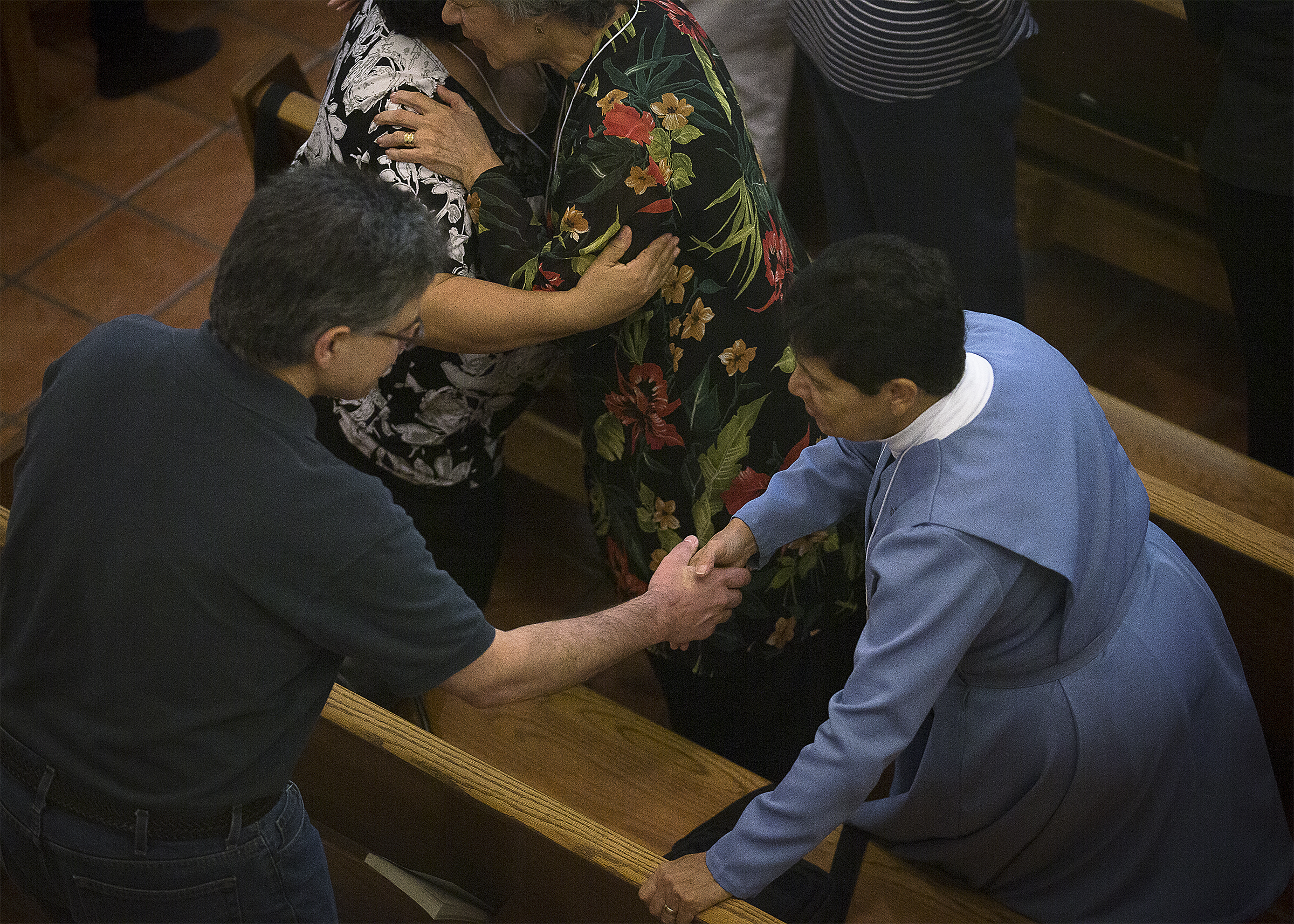Parishes encouraged to avoid shaking hands, offering cup at Communion; schools advised to update contingency plans
DETROIT — There have been no confirmed cases of the 2019 Novel Coronavirus in Michigan, but the Archdiocese of Detroit is taking precautions to prevent any possible spread of the illness.
Last week, the archdiocese released memos recommending measures parishes and schools can take to ensure the health and well-being of the Detroit area’s Catholics and students.
“As a Church, one of our sacred duties is to look after the health and safety of the community gathered each day for worship and prayer in our parishes,” Fr. Jeffrey Day, vicar general and moderator of the curia for the archdicoese, said in a letter to pastors. “Part of that duty is to prevent and respond to infectious diseases that may be in the community. In light of growing concerns about the coronavirus and its effects on those who have contracted the disease, we ask each of our parishes to implement precautionary measures to help prevent the transmission of any virus.”
Precautionary measures include urging the faithful to stay home from Mass if they are experiencing illness, suspending the practice of shaking hands during the Sign of Peace and holding hands during the Our Father, emptying and cleaning holy water fonts, and not offering the Precious Blood during Communion.
Fr. Day added Catholics who skip Mass to avoid spreading illness are not committing a sin, and that those who receive the Eucharist under the form of bread are receiving Christ fully.
“It may help to remind the faithful that the Consecrated Host is the full Body, Blood, Soul, and Divinity of Christ, meaning an individual does not need to receive from the Cup in order to achieve full Communion with Christ,” Fr. Day said.
“The Archdiocese has been, and will continue to, monitor news concerning the coronavirus,” Fr. Day said. “We are preparing for any potential impact on our parishes, schools and other ministries, and will follow any recommendations from local, state and federal officials.”
In a separate communication, Kevin Kijewski, superintendent of Catholic schools for the archdiocese, asked schools to take measures including updating emergency plans and contact lists, monitoring daily attendance for flu-like illness and absences and encouraging sick employees and students to stay home.
“In light of growing concerns about the coronavirus and its effects on those who have contracted the disease, it will be critical for schools to begin planning non-pharmaceutical interventions to prevent disease transmission and protect students and staff, as well as local communities, from infection,” Kijewski said. “Those interventions should include extra measures to ensure that commonly touched surfaces are disinfected, strict enforcement of exclusion policies for students and staff with flu-like symptoms or extended school closures.”
Kijewski added schools should plan ahead for possible extended school closures and frequently share information on websites and social media.
According to the Michigan Department of Health and Human Services, health experts are concerned because little is known about the virus and its potential to spread and cause severe illness and pneumonia.
The virus spreads through the air via coughing and sneezing, close personal contact such as touching or shaking hands, or touching an object or surface with the virus on it and then touching one’s mouth, nose or eyes. Symptoms include fever, coughing and difficulty breathing.
The health department recommends washing hands often, covering one’s mouth and nose with a tissue when coughing, not touching one’s eyes and nose with unwashed hands and avoiding contact with people who are sick. If one thinks they have the virus, they are encouraged to stay home and contact their health care provider.
To date, seven people who have been tested for the coronavirus in Michigan have tested negative. Nationally, more than 100 people have been diagnosed with the virus across 14 states, including 27 in Washington. Worldwide, more than 92,000 people have become ill from the virus, with 3,100 dying, the vast majority in China.










